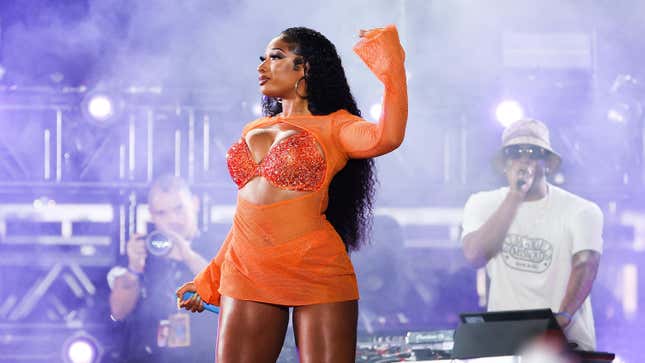The Girls and Gays Are Dominating Hip Hop, But Where Is the Respect?
DaBaby's betrayal of Megan Thee Stallion is just one example of straight men in hip hop refusing to cede dominance
EntertainmentMusic

On Monday morning, rapper DaBaby became a trending topic after footage of someone throwing a shoe at him during his Rolling Live festival set that weekend made the rounds. DaBaby dodged the shoe and tried to play it cool, asking, “who the fuck threw that motherfuckin’ busted ass goddamn Adida?” But this wasn’t necessarily the work of a drunk and disorderly member of the crowd; timing is everything. The incident occurred just after DaBaby made a slew of homophobic and sexist remarks: “If you didn’t show up today with HIV, AIDS, or any of them deadly sexually transmitted diseases that’ll make you die in two to three weeks, then put your cellphone lighter up;” “Ladies, if your pussy smell like water, put your cellphone lighter up;” “Fellas, if you ain’t sucking dick in the parking lot, put your cellphone lighter up.”
The statements came after DaBaby’s brazen move to invite Tory Lanez to the stage, a rapper who is arguably most famous for allegedly shooting rapper Megan Thee Stallion last summer during a domestic dispute. DaBaby even performed both “Cash Shit” and “Cry Baby,” two Megan Thee Stallion songs that included DaBaby as a feature. And as if the optics couldn’t get worse, Megan performed on the Rolling Live stage just before DaBaby did.
-

-

-

-

-

-

-

-

-

-

-

-

-

-

-

-

-

-

-

-

-

-

-

-

-

-

-

-

-

-

-

-

-

-

-

-

-

-

-

-








































